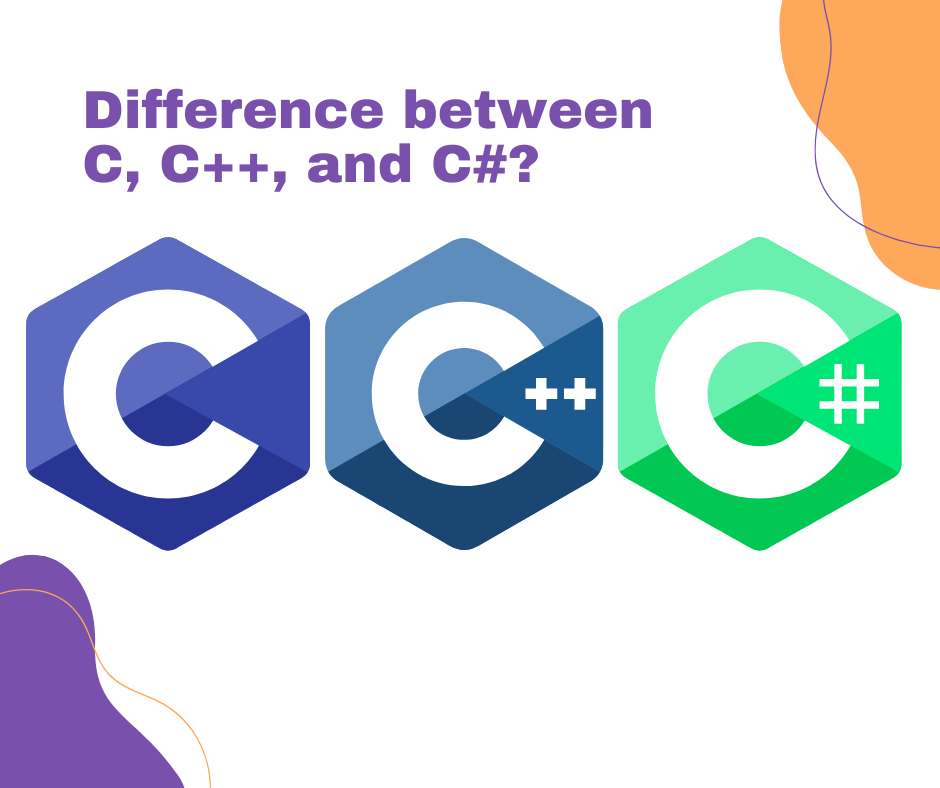
C, C++, and C# are three distinct programming languages, each with its own features, purposes, and areas of application. Here’s a breakdown of the key differences between them:
- C:
C is a procedural programming language developed in the early 1970s. It is known for its simplicity and efficiency. Key characteristics of C include:
- Procedural paradigm: C is primarily a procedural language, focusing on step-by-step execution of instructions.
- Low-level programming: C allows direct memory manipulation and provides fine-grained control over hardware resources.
- Limited abstraction: C lacks some high-level abstractions and features found in modern languages.
- Widely used for system programming, embedded systems, and developing low-level applications where performance and control are critical.
- C++:
C++ is an extension of the C language that introduces additional features and paradigms. It was developed in the 1980s and aims to provide both procedural and object-oriented programming capabilities. Key characteristics of C++ include:
- Object-oriented programming: C++ supports the creation of classes and objects, encapsulation, inheritance, and polymorphism.
- Strong type system: C++ enforces static typing and strong type checking, allowing for better code reliability and performance.
- Standard Template Library (STL): C++ provides a powerful library that includes container classes, algorithms, and generic programming templates.
- High-level and low-level programming: C++ combines high-level abstractions with low-level control, making it suitable for a wide range of applications, including systems programming, game development, and performance-critical applications.
- C#:
C# (pronounced “C sharp”) is a modern, object-oriented programming language developed by Microsoft in the early 2000s. It is part of the .NET framework and is often used for building Windows applications, web applications, and enterprise software. Key characteristics of C# include:
- Object-oriented programming: C# supports the concepts of classes, objects, encapsulation, inheritance, and polymorphism.
- Automatic memory management: C# uses a garbage collector to automatically handle memory management, relieving developers from manual memory allocation and deallocation.
- Platform independence: C# programs can run on different platforms using the .NET framework, including Windows, Linux, and macOS.
- Rich framework: C# provides a comprehensive class library and frameworks for building diverse applications, including GUI development, web services, and database access.
In summary, C is a low-level procedural language, C++ is an extension of C with added object-oriented features and a powerful standard library, and C# is a modern, object-oriented language primarily used for Windows and .NET development. The choice between these languages depends on the specific requirements, project scope, and target platform of the application you are developing.
